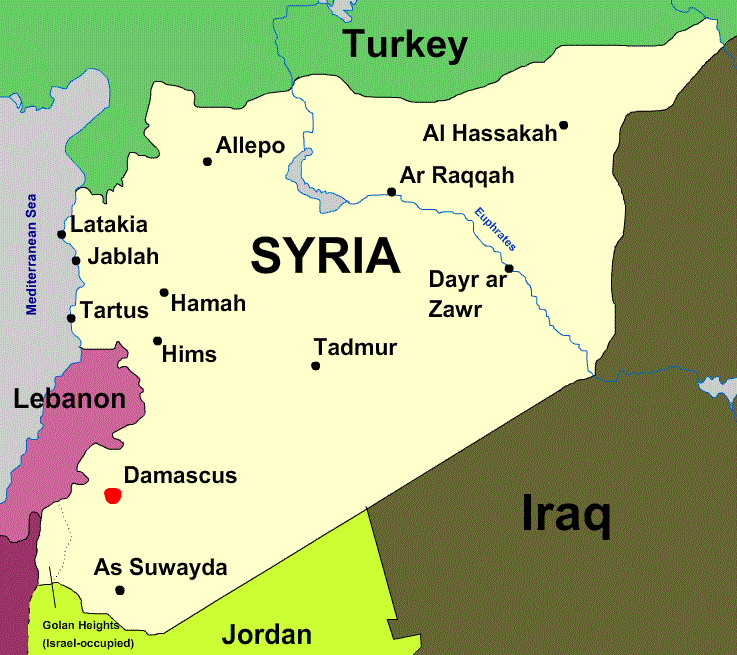After Failing to find an Alternative to Assad, the US is Seeking an Artificial Balance of Power in Syria to Create a Federal System based upon the Rotten Model it imposed on Iraq
On the 21st of October, President Trump declared that the US had reached “a critical breakthrough in our worldwide campaign to defeat ISIS and its wicked ideology”, and yet, despite major defeats for ISIS forces and the loss of Raqqah in Syria to the US-backed Syrian Democratic Forces (SDF), the US is still very far from a political solution in Syria. Trump also said that the U.S. would “soon transition into a new phase in which we will support local security forces, de-escalate violence across Syria, and advance conditions for lasting peace,” and this language hints at how long and difficult the US views the path ahead. ‘Supporting’, ‘de-escalating’ and ‘advancing conditions’ are not words used to describe a final phase.
The major events of the past few days have centered on Kurdish forces in both northern Iraq and Syria. After the president of the Kurdish Regional Government in Northern Iraq defied US requests not to hold a secession vote on the 25th of September, in which 92% of voters chose Kurdish secession, the federal government in Baghdad began amassing forces around the city of Kirkuk, which Peshmerga forces from Barzani’s Kurdish Democratic Party (KDP) and the Patriotic Union of Kurdistan (PUK) had held since 2014. This tension between two US allies was condemned by Senator John McCain, the Republican chairman of the Senate Armed Services Committee: “The United States provided equipment and training to the government of Iraq to fight ISIS and secure itself from external threats — not to attack elements of one of its own regional governments, which is a longstanding and valuable partner of the United States.” Despite McCain’s warning of “severe consequences,” the federal government with assistance from Iranian militias advanced on Kirkuk on the 16th of October following a last minute deal with PUK commanders opposed to President Barzani. Within hours, PUK forces followed by KDP forces abandoned Kirkuk to the federal government.
American officials, including President Trump, had insisted that the United States was not taking sides in the dispute, but the New York Times reported on the 18th of October that the United States seems to have “approved the Iraqi plan to enter Kurdish-held areas and that Iran helped broker the agreement with a Kurdish faction to withdraw its fighters from Kirkuk, allowing the Iraqi forces to take over largely unopposed”. Despite this setback for Kurdish independence in Iraq, Kurdish allies of the US in Syria are hopeful that they will be rewarded after their US-coordinated take-over of Raqqah. Reuters reported that the Kurdish-dominated Syrian Democratic Forces (SDF) said that there would be self-determination “within the framework of a decentralised, federal, democratic Syria.” A Kurdish entity within Syria similar to the Kurdish Regional Government in Iraq may be promised, but the borders and composition of such an entity would be contested. Turkish armed forces are surrounding Kurdistan Worker’s Party (PKK) forces in Afrin from the north, and are establishing eight bases throughout Syria’s Idlib province according to Yeni Şafak Daily. In addition to likely confrontation with Turkey, the US-backed forces are competing with Russian-backed Syrian government forces in the eastward rush towards the border with Iraq.
The local forces that Trump spoke about supporting in Syria are divided, and the US will make and break many promises before its dream of settling the fate of Syria could be accomplished, and the question of what to do with the Assad regime remains unclear and if the regime is not removed it will need to be weakened to force it to accept a federal constitution. One of the possible tools the US could use is the ‘Joint Investigative Mechanism’ of the United Nations, which is mandated to investigate 60 alleged uses of chemical weapons. The US is currently seeking to renew this mandate for another year, against Russian complaints that the investigation is progressing too slowly.
The US hopes to establish favorable regions of influence in Syria that achieve balances of power with competing local and regional forces. Under such circumstances, the near future is very uncertain, but the sudden weakening of the situation of the Kurds in Northern Iraq should serve as a warning of how easily friends of outside powers can be thrown away when they misread their own power or their masters’ intentions.
Dr. Abdullah Robin
Written for Ar-Rayah Newspaper – Issue 154

